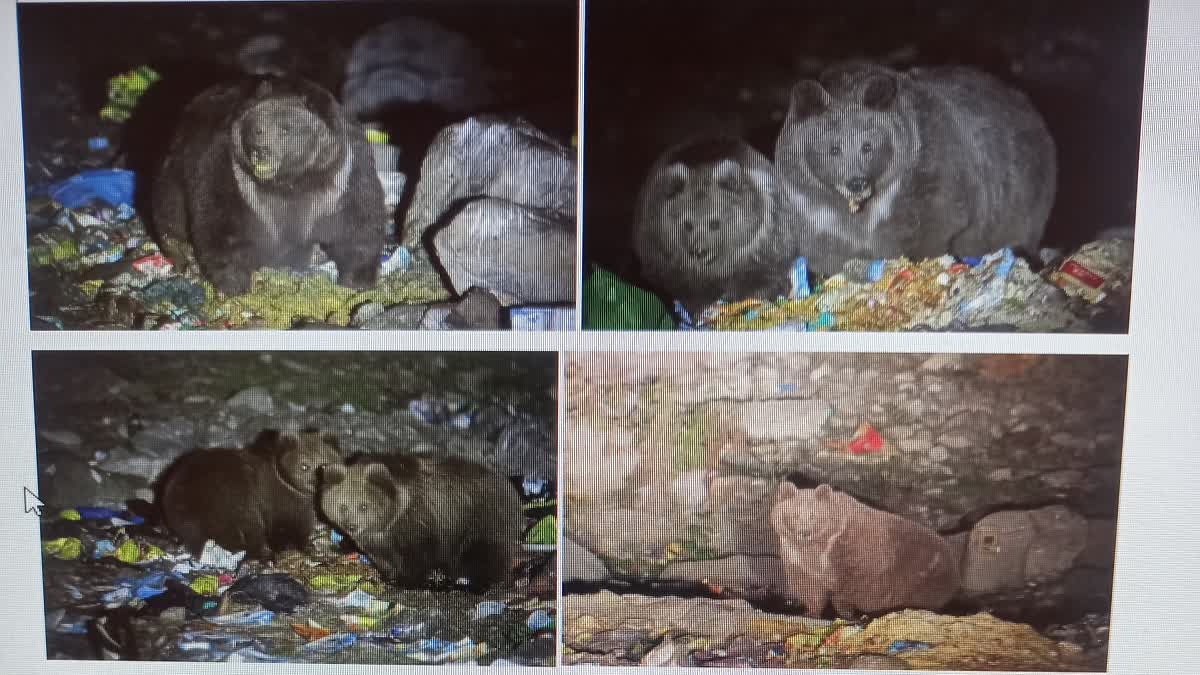Srinagar: The National Green Tribunal (NGT) has directed the Jammu and Kashmir government to initiate action against the Sonamarg Development Authority for open garbage disposal, which is threatening brown bears and increasing human-animal conflict in the valley.
“Initiate proceedings and issue notices to the defaulting body for violations of Solid Waste Management Rules, 2016 as also under the relevant provisions of the Water (Prevention & Control of Pollution) and Air (Prevention & Control of Pollution) Act,” the NGT directed the RegionaI Director, J&K Pollution Control Committee (PCC).
The order comes following a report on brown bears, who have been restricted in the alpine meadows of the Himalayas.
The NGT has asked the PCC to submit a compliance report within 15 days after directing it on November 11 to take action against SDA for violating Solid Waste Management Rules, which endanger the brown bears.
Expert Panel Raises Alarm
Following the reprimand, the Regional Director of PCC, Kashmir, constituted a three-member committee of scientists that found increasing tourism and Amarnath pilgrimage footfall leading to major construction activities in the area and threatening the brown bears' habitat and their natural food choices.
According to PCC findings, the SDA collects 7-10 metric tonnes of solid waste per day, which goes up to 20 metric tonnes during the peak tourism season, but its solid waste management is not well equipped to manage such large garbage.
“More than 268 tourist accommodations and facilities, including hotels, restaurants, shops, etc., have been built in Sonamarg. Various roads and tunnelling projects, including Z-Morh and Zojila tunnels, are being executed in the area for year-round connectivity,” the committee, comprised of scientists Dr. Sabeena Sultan, Shabir Ahmad Scientist, and senior official Mohammad Ayoub, found in the report that was submitted to the NGT.
“Tourism activities, such as the construction of hotels, guest houses, restaurants, markets, roads, and various tunnelling projects, have led to habitat fragmentation and increased human intervention in an area that once entirely served as a habitat for various species of wild animals, including the Himalayan Brown Bear,” the report says.
Sonamarg, located in the Ganderbal district of central Kashmir, lies within the Central Wildlife Division Kashmir; its alpine meadows and sub-alpine forests, cold, arid, bare rocks, and glaciers serve as habitats for the Himalayan brown bear, Snow Leopard, Tibetan Wolf, Musk Deer, Asiatic Ibex, and Marmot. It is also home to the Thajwas Wildlife Sanctuary, which is home to several species of wild animals, but their existence is endangered by human activities. It also serves as a link between Ladakh and Jammu and Kashmir.
Warning By Wildlife NGO
In 2021, J&K Wildlife Protection Department and Wildlife SOS, an NGO that works for wildlife protection and conservation in India, found the brown bears in Sonamarg are facing threats in their habitat and food habits due to tourism, Amarnath pilgrimage, and open garbage disposal.
The study highlighted the unplanned disposal treatment of waste in the Sonamarg region, where 75% of the food of brown bears was found to be plastic, chocolates, and organic food waste, which they forage at the SDA dumping sites. The research found out that the brown bears frequented garbage sites managed by the SDA, army transit camps, and the Amarnath pilgrim camps as they provided easy foraging grounds for the bears.
“Most of the bears seem to have forgotten their original feeding behaviour, and these kinds of garbage sites were very attractive as easy foraging grounds and led to food habituation. It is a serious concern as such behaviours if passed to the next generation, could lead to changes in feeding behaviour with young ones considering them as their natural behaviours and lead to conflicting situations in the future,” the study warned.
“Expansion of developmental activities corresponding to tourism activities into brown bear prime habitat is leading to its habitat fragmentation and destruction,” it said.
The study suggested several measures for protecting the brown bears, which included stopping open dumping of food and garbage at the garbage sites, checking on the presence of migratory livestock during the summer, and regularising and limiting pilgrims to the Amarnath cave.
“There is a need to regulate tourism in Thajwas Wildlife Sanctuary, buffer zone, and adjacent wildlife potential areas,” the study suggested.
The study said that the administrations of Ladakh and Jammu and Kashmir are planning to develop the stretch of Sonmarg to Baltal (15 km) valley as a winter destination in the form of a township with modern facilities for winter sports with luxury accommodation and other necessary infrastructure in collaboration.
“This needs a thorough consideration as this patch of habitat acts as a corridor for wildlife connecting areas from Durinar, Sarbal to Zojilla, Nilgrat to Nachnai areas,” the study said.
Read More



